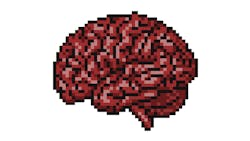Could Google’s search engine violate discrimination laws, Tesla’s autonomous driving software be charged for manslaughter, or IBM’s Watson be taken to court for copyright infringement?
Ngai Zhang, a patent lawyer at Pillsbury Winthrop Shaw Pittman in Virginia, who handles cases from video games to security, says these questions are seldom talked about. It is difficult to predict how human-like software will clash with discrimination or privacy law. Artificial intelligence could also force us to reexamine the idea of creativity itself.
For decades, engineers have used intelligent software in everything from the design of toothbrush bristles to the verification of computer circuits. But it is much harder to assign copyrights when humans stop using software as a tool and instead collaborate with it to design a manufacturing process, or let it work alone to write music.
Mr. Zhang will be talking more about this topic and others at the Industrial Design & Engineering Show, sponsored by Electronic Design’s sister publication Machine Design. But in a recent interview, he touched on how artificial intelligence intersects with patent law and industrial technology. This interview has been edited and condensed.
|
Register for the ID&E show and use the code IDESAVE for a $499 pass. This offer lasts from March 7th to March 31st. Visit the website here for a full schedule of the event, which is co-located with the Manufacturing & Technology Conference in Cleveland. |
Why does artificial intelligence pose legal problems?
Take AlphaGo. They started training the program by supervising it, giving it datasets to learn and then they let it go ahead and do some unsupervised training. It played a bunch of games with itself and watched human Go players as it played. And the reason why that is important is that it provides much faster, more intuitive decision-making.
The reason why humans make mistakes is that our decisions are not based on probability. One of the things that Elon Musk, the founder of Tesla and SpaceX, says is that humans like to make analogies versus actually looking down at the fundamentals. And that is how he approached building his rockets. Instead of buying someone else’s, he went down to the fundamentals and built a rocket from scratch.
What does that have to do with law?
The move toward artificial intelligence – or software that is more or less humanlike – is cleaning the air for those program to make these analogies, because they can be significantly faster and use significantly less resources. Because they are mimicking human cognitive function, they are going to develop biases or stereotypes.
Because it is using an analogous method of learning, there could be issues with discrimination, even if you look at algorithms that are not necessarily A.I. I think there was an issue with Google: you typed in C.E.O. and rather than showing an appropriate number of women it was basically all men. Or there is the allegation that software targets ads for lower paying jobs to women.
I have read reports that criminal risk assessment software is already biased. But how does this intersect with intellectual property law?
The stance many patent examiners had taken is that even if the software you’re trying to protect or patent is something that a human can do – even given several humans doing it and it taking a thousand years – it is not patent eligible. But the artificial intelligence field is trying to mimic a human’s fast intuitive judgment. And so that's where it bleeds into the law.
How about manufacturing and industrial engineering?
Imagine machines that generate new code for manufacturing, detect inefficiencies, and change programs so that everything runs more smoothly. If I went ahead and invented something that improved the technical field of manufacturing or a specific product, it would arguably be patent eligible.
Like if a software program independently found a new way to machine a part or lay out a circuit board. How would copyright law work that situation out today?
If you create something with an artificial intelligence program, it might be elibigle for copyright protection. If you contribute the creative aspect, it's clear that copyright protection is obtainable. The question is harder with artificial intelligence because you don’t know who contributed the creative aspect.
How do you think the rise of artificial intelligence as a collaborator – and not just a tool – will affect human innovation?
A.I. programmed to learn and specialize in a particular technology or technical field can certainly accelerate human innovations. For example, to help scientists and engineers innovate, an A.I. program can identify potential issues and suggest technical solutions for them to explore. Even when the A.I. program is unable to provide more concrete answers, it may ask insightful questions.
Some have proposed giving intelligent software the ability to file patents.
I don’t know if giving the ownership rights to artificial intelligence program will solve any problems. For now, an artificially intelligent robot can’t get rights to patent. Like animals can’t get rights to copyright. There was once this copyright case with a monkey that took a selfie. An artist tried to sell [the image] and the court basically said that copyrights aren’t for monkeys.
How might patent law be modified to better handle the artificial intelligence problem?
The law always lags behind technology. It would always be great if lawmakers would think ahead and create laws based on what they think is coming rather than trying to fix the problem many years after technology is introduced. I don’t have any specific ideas but one thing would be to set forth more clear guidelines. It would be good to think ahead but unfortunately it hasn’t happened.
It seems like law firms are mulling over how software can make them more efficient. How do you think that artificial intelligence will change a lawyer’s job?
Like IBM Ross?
That or something more advanced.
What Ross does is keep track of law reviews and case law. It may make certain suggestions about current cases. It can also be used in discovery and document review: attorneys can spend hours and hours, days and days, and maybe even weeks pouring over documents to check what’s relevant to submit.
Things like that – in the next ten years – artificial intelligence will probably be able to do. If they take my job, I hope I’ll be retired by then.
About the Author
James Morra
Senior Editor
James Morra is the senior editor for Electronic Design, covering the semiconductor industry and new technology trends, with a focus on power electronics and power management. He also reports on the business behind electrical engineering, including the electronics supply chain. He joined Electronic Design in 2015 and is based in Chicago, Illinois.



